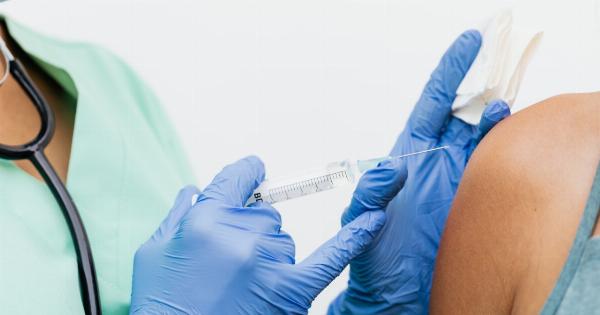Vaccination has been touted as one of the most effective and important medical breakthroughs of the last century. It has played an important role in reducing the incidence of many communicable diseases.
Vaccines are one of the most effective tools we have to prevent diseases and their complications. However, there are still a lot of people who remain unconvinced of their efficacy.
Vaccination Rates and Trends
Vaccination rates have been steadily increasing over the years, but there are still many people who refuse to vaccinate themselves or their children. The percentage of people who are vaccinated varies depending on the population and the type of vaccine.
For example, the vaccination rates for MMR (measles, mumps, and rubella) and polio in the US are between 92% to 94%. In contrast, the vaccination rate for human papillomavirus (HPV) is only about 45% to 53%.
One of the reasons why vaccination rates are low is that there are many misconceptions about vaccines.
Some people believe that vaccines cause autism, while others think that vaccines contain harmful substances that can lead to long-term health problems. These beliefs have been debunked by scientific studies, but they still persist among some segments of the population.
The Effects of Non-Vaccination on Public Health
When people refuse to vaccinate themselves or their children, they put themselves and others at risk. People who are not vaccinated are more likely to get sick from preventable diseases, and they can also spread these diseases to others.
Non-vaccination can lead to outbreaks of diseases that had previously been controlled or eradicated.
For example, in 2014, there was a measles outbreak in the US that was linked to Disneyland. There were 147 cases of measles, and most of the people who got sick were unvaccinated or had no known vaccination history.
This outbreak caused a lot of concern among public health officials and led to an increased emphasis on vaccination.
Non-vaccination also puts vulnerable populations such as young children, the elderly, and people with weakened immune systems at risk.
These groups are more likely to have serious complications from preventable diseases, and they may not be able to receive certain vaccines due to underlying medical conditions. By refusing to vaccinate, people are not only endangering themselves but also putting others at risk.
The Role of Public Health Officials
Public health officials play a vital role in promoting vaccination and combating misconceptions about vaccines. They provide information about the safety and efficacy of vaccines, and they work to dispel myths and misconceptions.
They also work to ensure that vaccines are available and accessible to everyone who needs them.
One way that public health officials promote vaccination is through education campaigns. These campaigns use various media channels to disseminate accurate information about vaccines and their benefits.
They also work with healthcare providers to ensure that they are up-to-date on vaccine recommendations and have the resources they need to provide vaccines to their patients.
Another way that public health officials promote vaccination is through vaccine mandates. These mandates require certain populations (e.g., schoolchildren, healthcare workers) to be vaccinated against certain diseases.
Vaccine mandates have been controversial, with some people arguing that they infringe on individual freedom and autonomy. However, they have proven to be an effective way to increase vaccination rates and prevent outbreaks of preventable diseases.
The Future of Vaccination
Despite the progress that has been made in promoting vaccination, there is still a lot of work to be done. There are still many people who are hesitant or unwilling to vaccinate themselves or their children.
This is especially true in the age of social media, where misinformation can spread quickly and easily.
One way that vaccination may be improved in the future is through the development of new vaccines. There are currently many new vaccines in development, including ones for HIV, tuberculosis, and malaria.
These vaccines could have a significant impact on public health, especially in developing countries where these diseases are prevalent.
Another way that vaccination may be improved in the future is through increased emphasis on education and communication. Public health officials need to work hard to combat misinformation and promote accurate information about vaccines.
This will require a broad-based approach that includes not only education campaigns but also engagement with the media and with community leaders.
Conclusion
Vaccination is one of the most important tools we have to prevent diseases and improve public health. However, there are still many people who are hesitant or unwilling to vaccinate themselves or their children.
This puts themselves and others at risk and can lead to outbreaks of preventable diseases. Public health officials play a vital role in promoting vaccination, and there are many ways that vaccination can be improved in the future. By working together, we can ensure that vaccines are available and accessible to everyone who needs them.































